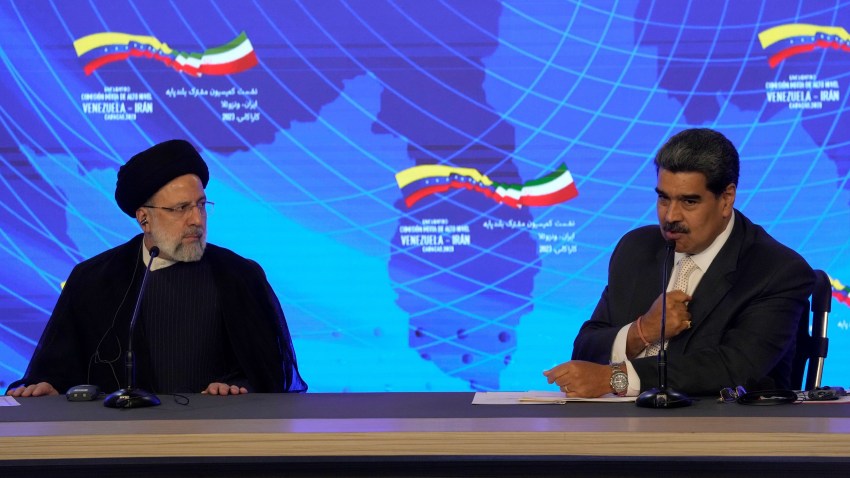Most of the focus in the faceoff between liberal democracy and authoritarian models of governance remains on the rivalry between the U.S. and China as well as on Russia’s invasion of Ukraine. But the competing camps are enlisting backers across the globe, and Latin America is becoming one of the geopolitical battlegrounds. There, Venezuela has emerged as the epicenter of activity for the anti-Western front, even as the world’s democracies seem to be losing their resolve to isolate Caracas.
Just last week, Iranian President Ebrahim Raisi kicked off a three-country tour of Latin American autocracies with a high-profile visit to Venezuela, where he was received warmly by President Nicolas Maduro. He then made stops in Nicaragua and Cuba, two other countries that are firmly in the nondemocratic camp, where he echoed the anti-American rhetoric he had already unveiled in Venezuela. That made it clear that the trip, though ostensibly aimed at forging practical agreements to promote trade, was also targeted squarely at the United States.
“Relations between Iran and Venezuela are not normal diplomatic ties,” Raisi declared in Caracas. “They are strategic.” If that wasn’t clear enough, Raisi added, “We have common visions … and common enemies.”

